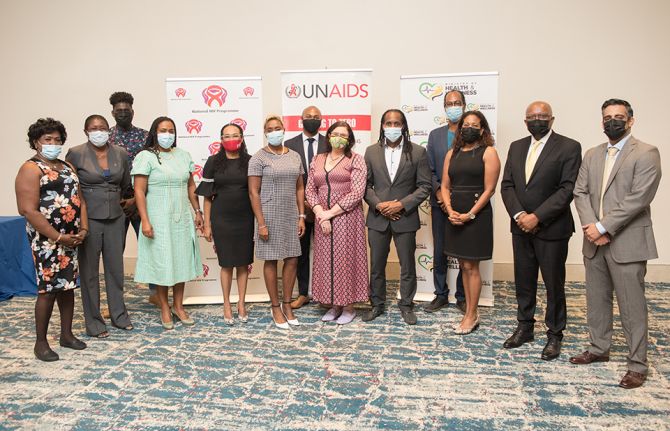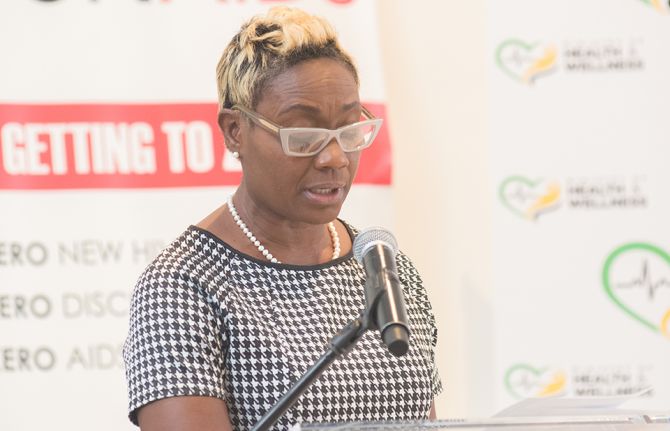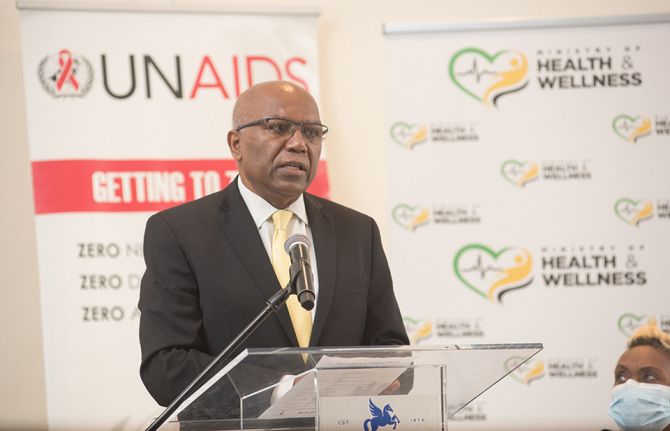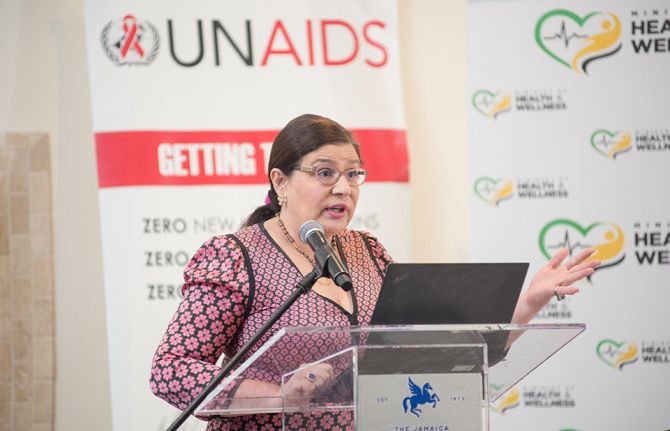




Feature Story
Jamaican parliamentarians committed to ending discrimination
25 November 2021
25 November 2021 25 November 2021Members of parliament have reaffirmed their commitment to tackle all forms of HIV-related stigma and discrimination in Jamaica and to help enhance efforts to create an enabling environment for people living with and affected by HIV.
At a meeting co-hosted by UNAIDS and Juliet Cuthbert-Flynn, the Minister of State for Health and Wellness and Chair of the country’s Partnership for Action to Eliminate all Forms of HIV-Related Stigma and Discrimination, members of parliament, from both the ruling and opposition parties, came together to review evidence on stigma and discrimination in Jamaica and its impact on health outcomes and to craft a way forward in which their role as lawmakers can contribute to eliminating stigma, discrimination and violence.
Jamaica’s legal landscape poses substantial barriers for people living with and affected by HIV to access health services. For example, same-sex sexual relations are criminalized in Jamaica, which continues to represent a considerable deterrent for marginalized communities. Moreover, the country lacks general legislation against discrimination, a national human rights institute and a gender recognition law that could provide further protection for transgender and gender non-conforming people in Jamaica.
Harmful laws, policies and generalized stigma and discrimination against people living with and affected by HIV have a profound negative effect on people’s health outcomes and life prospects. The most recent Knowledge, Attitudes, Practices and Behaviour Survey and the People Living with HIV Stigma Index showed that only approximately 12% of the general population have accepting attitudes towards people living with HIV, while close to 60% of people living with HIV have feelings of self-stigma. A 2019 study about the economic survivability of transgender and gender non-conforming communities in Jamaica found that experiences of workplace stigma and discrimination were widespread, with about 60% of survey respondents declaring such incidents. Furthermore, 71% of respondents felt that transgender and gender non-conforming people had a harder time getting jobs than cisgender people. Another study suggests that approximately 20% of lesbian, gay, bisexual and transgender people in Jamaica have been homeless at some point of their lives.
In view of these pending challenges in the country’s HIV and human rights response, members of parliament explored creating a working group tasked with performing periodic reviews of relevant data, supporting the enactment of protective legislation, challenging harmful laws and policies and hosting permanent dialogues with communities of people living with and affected by HIV.
“We have a lot of work to do to ensure that all Jamaicans enjoy the full respect, protection and promotion of their rights. This meeting and its outcomes are a small step to achieving that goal, but a step that certainly is pointing us to the right direction on the role that members of parliament should play to end discrimination,” said Ms Cuthbert-Flynn.
These efforts, which aim to tackle deeply rooted misconceptions in society, require strong partnerships. As stated by Morais Guy, the Opposition Spokesperson on Health, who co-chaired the meeting, “The enhancement of people’s rights and collective efforts to ensure that every Jamaican can live a life free from stigma, discrimination and violence is not an issue of only one person, one entity or one political party. It is the business of all of us, to work in partnership for the dignity of all Jamaicans.”
Members of parliament also discussed some of the challenges that they face as legislators to perform their duties, and the contributions that UNAIDS can make in facilitating a more efficient, effective and transparent law-making process in parliament. Moreover, options to mobilize and engage citizens at the community level to challenge stigma were also discussed in response to the critical need of raising more awareness, tolerance and respect towards people living with and affected by HIV.
“We are proud to partner with members of parliament to tackle stigma and discrimination in Jamaica and to provide all of the evidence, instruments and support that we can mobilize to leverage their role as allies and critical influencers in the future of the country,” said Manoela Manova, the UNAIDS Country Director for Jamaica.



